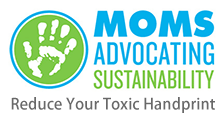By, Melissa Sklar
As spring started coming around this year, I noticed lots of Facebook posts about the sharp decline of the bee population and the related overuse of pesticides, especially Neonic or nicotine based pesticides and Glyphosate based herbicides, and most specifically Roundup. As Earth Day approached, I made a commitment to step outside my comfort zone and voice my concerns about what was happening to our pollinators and how we could individually do our part to address the situation.
As I tried to find out just exactly what the cause was for the bees drastic decline, it became clearer and clearer to me that what was really happening to the bees and other pollinators could not be separated from what was happening to our food, our health, our wildlife and the earth itself.
If we think catastrophic climate change is a wake up call to the devastation the industrial age has wrought, the devastating loss of one third of our bee population globally over the last few years and the disappearance of our monarch butterfly population over the same time is no less a clarion call for what is to come if we do not put the brakes on our reliance and subsequent parasitical destruction of the ecosystem in ways it’s hard to conceive.
It has become more and more certain that Roundup herbicide is not the harmless weed killer we thought but an extremely toxic, even deadly substance to humans, suspected in a long list of health disorders including chronic kidney failure, endocrine disruption, liver atrophy, autism, Parkinson’s Disease and Muscular Sclerosis to name a few. President Obama released a statement this June regarding his own concern about the loss of the honeybee and the pollinator population in general in the US calling for a 180 day period of research and reassessment regarding the use of Neonics and other chemicals used in weed and pest control that might be the underlying cause of colony collapse disorder. Be aware that these chemicals are often what so many of us allow sprayed on our lawns by companies like True Green and remain toxic to us, our children and our pets for long after they are applied and also find their way into our aquifers, our food and our air, killing not just bees but birds, amphibians and other wild life.
Research over the last twenty years or so makes it clear the Roundup and Neonics as well as Organophosphates do not just disappear from our food once treated, but are actually systemic and remain in every molecule of the plant and the soil. Our intake of these substances is high and it has been widely reported that the herbicide Roundup has been found in alarmingly high levels in the breast milk of nursing mothers.
Now we are beginning to see what’s been called a “global resistance” to the deadly triumvirate of GMO, Roundup and Neonic pesticides. Conversely, there is also a spike in the interest and subsequent increase in small and large organic farming as well as the adoption of permaculture as a new paradigm which helps us envision our environment in completely different and eco-loving way allowing us to understand the natural checks and balances of our ecosystem that can support, nourish and increase our farm and garden yields without the use of synthetic poisons.
I truly believe we can heal the earth through a new paradigm that re-perceives our role as being co-gardeners with this planet of ours. In fact, I think the generations to come will take this up as one of their main tasks. Our earth needs our time and love and we need the same from the earth. Together we heal each other…and in doing so save our bees!
So if you are wondering, right here and right now, what can I do that would make a huge difference for the bees and other pollinators, here is a list of five important ways you can make a difference:
Five things you can do to save the bees:
1. Plant organic friendly plants and flowers, preferably home grown from heirloom seeds. The Organic Consumers Association shares the importance of buying organic seeds, especially in light of drastic decrease in the variety of seeds available. Beyond Pesticides has a Pollinator-Friendly Seeds and Nursery Directory and Baker Creek Heirloom Seeds is a great source for organic seed purchases.
2. Don’t use toxic herbicides or pesticides in your home or garden. Integrated pest management practices, composting and mulch can all help grow your garden naturally. The Garden Guides site has suggestions on alternatives to pesticides for garden plants.
3. Support local sustainable agriculture which houses up to 50 % more healthy bees. A recent Harvard study has linked the widespread colony collapse of bees to the use of certain kinds of pesticides.
4. Purchase raw organic honey from local sustainable apiaries. Tests show that most mass produced honey sold in stores doesn’t even contain pollen – most mass produced honey sold in stores doesn’t even contain pollen. For more information on what to look for when purchasing honey, The Benefits of Honey website breaks it down.
5. Tell your local garden store to stop selling bee killing insecticides, pesticides and chemicals. Consumer demand is key to effectuating change. You can also sign a petition to tell Lowes and Home Depot to stop selling plants treated with pesticides that are toxic to bees.
Melissa Sklar is the founder of the community based awareness raising group Bee Aware. (www.facebook.com/beeawares) and can be found manning her information booth every Tuesday through the summer and fall (barring inclement weather) at the Cobblestone Farmers Market from 4-7 located off Packard Road in Ann Arbor, Michigan. Her email is beeawares@gmail.com

